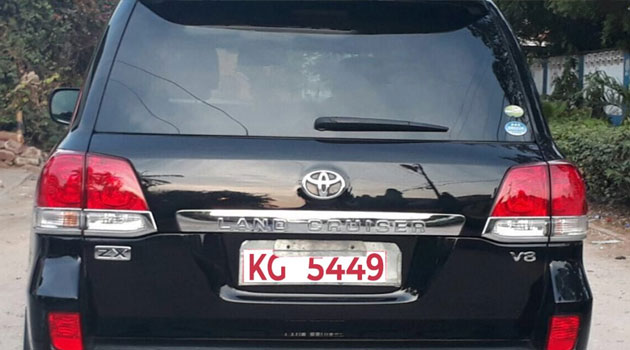The Kenyan transport sector is a vital cog in the country’s economic machinery, facilitating the movement of goods, services, and people. For businesses operating in this space—whether running a garage, dealing in vehicles, operating tow trucks, or managing container freight stations—compliance with the National Transport and Safety Authority (NTSA) regulations is non-negotiable. Obtaining the correct licences and number plates, such as Kenya Garage (KG), Dealer Licence (KD), Kenya Tow Trucks (KT), and Kenya Container Freight Station (KC) plates, ensures legal operation and enhances credibility. This comprehensive guide walks you through the process of applying for or renewing these licences and plates via the NTSA portal, detailing required documents, costs, timelines, and insider tips to streamline your application.
Understanding NTSA Specialised Plates and Licences
The NTSA oversees the regulation of motor vehicles and transport businesses in Kenya, ensuring safety, compliance, and efficiency. Specialised plates like KG, KD, KT, and KC are designed for specific commercial purposes, each governed by strict guidelines. Here’s a breakdown:
- Kenya Garage (KG) Plates: Issued to motor vehicle repair garages for vehicles under repair or testing.
- Dealer Licence (KD) Plates: For motor vehicle dealers, used for vehicles in showrooms or during test drives.
- Kenya Tow Trucks (KT) Plates: Designated for tow trucks, ensuring they meet operational and safety standards.
- Kenya Container Freight Station (KC) Plates: For vehicles transporting containers to and from freight stations.
These plates and licences are issued through the NTSA’s online portal, integrated with the eCitizen platform, making the process digital and efficient. Whether you’re applying for a new licence or renewing an existing one, understanding the requirements and procedures is key to avoiding delays or rejections.
Why Compliance with NTSA Regulations Matters
Operating without the correct licences or plates can lead to hefty fines, vehicle impoundment, or business closure. For instance, a 2025 post on X highlighted a case where non-compliance with transport regulations led to a Ksh. 1,000,000 fine or a one-and-a-half-year sentence for infrastructure-related offences. Compliance not only ensures legal operation but also builds trust with clients and authorities, enhancing your business’s reputation in Kenya’s competitive transport sector.
Step-by-Step Guide to Applying for KG, KD, KT, and KC Plates on the NTSA Portal
The NTSA has streamlined the application process through the eCitizen platform, making it accessible for new applications and renewals. Below is a detailed guide to navigating the NTSA portal for these specialised plates and licences.
Step 1: Prepare the Required Documents
Before logging into the NTSA portal, ensure you have all the necessary documents ready. Missing or incomplete documents are a common cause of application rejections. Here’s what you’ll need:
- Valid Business Permit/Trade Licence: Proof that your business is legally registered to operate in Kenya.
- Valid Work Permit (if applicable): For foreign nationals operating the business.
- Copies of Directors’ ID Cards and Foreigners Certificate (if applicable): Identification for all company directors.
- Certificate of Good Conduct for Directors: Issued by the Directorate of Criminal Investigations (DCI) to confirm no criminal record.
- KRA PIN Certificate: For tax registration purposes.
- Valid KRA Tax Compliance Certificate: To verify tax compliance status.
- Current CR12: A document from the Business Registration Service listing the company’s directors.
- Valid SHA Compliance Certificate: To confirm compliance with SHA contributions.
- Valid NSSF Compliance Certificate: To verify compliance with National Social Security Fund contributions.
- Certificate of Compliance with Health and Safety at Workplace: Issued by the Directorate of Occupational Safety and Health Services (DOSHS).
- Work Injuries Benefit Certificate: Proof of compliance with the Work Injury Benefits Act (WIBA).
Pro Tip: Ensure all documents are scanned clearly in PDF format and are up-to-date. Expired certificates or permits will lead to automatic rejection.
Step 2: Access the NTSA Portal via eCitizen
The application process is entirely online, requiring an active eCitizen account. Follow these steps:
- Log in to eCitizen: Visit eCitizen and log in using your credentials. If you don’t have an account, create one by providing your ID number, email, and phone number.
- Navigate to NTSA Services: On the eCitizen dashboard, select the NTSA service portal (new).
- Access the Dealer’s Revalidation Portal: Click on the relevant section for KG, KD, KT, or KC plates or licences.
- Fill in the Application Form: Provide accurate details about your business, including registration details, director information, and the type of plate or licence you’re applying for.
- Upload Required Documents: Attach all the documents listed above in the specified format (usually PDF).
- Submit the Application: Double-check all entries and documents before submitting to avoid errors.
Step 3: Verification and Physical Vetting
Once your application is submitted, NTSA officials will review the documents. This process includes:
- Document Verification: NTSA confirms the authenticity and validity of uploaded documents.
- Physical Vetting: For KG, KT, and KC plates, NTSA may conduct an on-site inspection to verify that your garage, tow truck, or freight station meets safety and operational standards. For KD plates, the focus is on ensuring your dealership complies with NTSA regulations.
Timeline: The verification and vetting process typically takes 3 working days, provided all documents are in order. Delays may occur if additional clarifications or inspections are required.
Step 4: Receive Notification and Make Payment
After verification, NTSA will notify you via email or SMS about the status of your application:
- Approval: If approved, you’ll receive an invoice detailing the applicable fees.
- Rejection: If rejected, NTSA will provide reasons, such as missing documents or non-compliance with safety standards. You can address the issues and resubmit.
Payment Details:
- New Dealer’s Licence (KD): Ksh. 9,650
- Secondhand Dealer’s Licence: Ksh. 4,250
- New KG, KT, or KC Plates: Ksh. 18,550 per plate
Payments are made through the eCitizen platform using mobile money (e.g., M-Pesa), bank cards, or other approved methods. Once payment is confirmed, you can download your digital licence or plate approval document.
Step 5: Collect Your Licence or Plates
Upon payment, NTSA will issue the digital licence or plate approval document, which you can download from the portal. For physical plates (KG, KT, KC), you’ll need to visit an NTSA-approved collection point, such as an NTSA office or designated agent. In a 2023 post, NTSA noted that new plates can be collected within seven working days after application, though this may vary depending on demand.
Renewal Process for KG, KD, KT, and KC Licences and Plates
Renewing your NTSA licences or plates follows a similar process to new applications, with a few differences:
- Access the Renewal Portal: On the NTSA portal, select the renewal option instead of a new application.
- Update Documents: Provide updated versions of the required documents, such as a current KRA Tax Compliance Certificate or NHIF/NSSF certificates.
- Pay Renewal Fees: Renewal fees are typically lower than new applications but vary depending on the licence or plate type. Check the invoice for exact amounts.
- Timeline: Renewals are processed within 3 working days, assuming no issues with documentation.
Note: Failure to renew on time can result in penalties or suspension of your licence, impacting your business operations.
Common Challenges and How to Overcome Them
While the NTSA portal is user-friendly, applicants often face hurdles. Here’s how to address common issues:
- Document Rejections: Ensure all documents are current and meet NTSA’s specifications. For example, a CR12 must be less than 6 months old.
- Delayed Processing: High application volumes can cause delays. Follow up with NTSA via their customer service channels (e.g., email: info@ntsa.go.ke or phone: +254 709 932 000).
- Technical Issues on eCitizen: Clear your browser cache or try a different browser if the portal is unresponsive. Alternatively, visit an NTSA office for assistance.
- Physical Vetting Delays: Schedule vetting promptly and ensure your premises comply with safety standards to avoid rescheduling.
Costs and Budgeting for NTSA Licences and Plates
Budgeting for licences and plates is crucial for transport businesses. Here’s a summary of costs:
- New Dealer’s Licence (KD): Ksh. 9,650
- Secondhand Dealer’s Licence: Ksh. 4,250
- New KG, KT, or KC Plates: Ksh. 18,550 per plate
- Renewal Fees: Vary but are generally lower than new applications
- Additional Costs: Factor in document preparation costs (e.g., obtaining a CR12 or Certificate of Good Conduct) and potential vetting fees.
Pro Tip: Set aside a contingency budget for unexpected costs, such as additional inspections or resubmission fees.
Insider Tips for a Smooth Application Process
- Apply Early: Submit your application well before your current licence expires to avoid operational disruptions.
- Use a Checklist: Create a checklist of required documents to ensure nothing is missed.
- Engage a Consultant: For complex applications, consider hiring a transport compliance consultant familiar with NTSA processes.
- Stay Updated: Follow NTSA’s official channels or platforms like X for updates on policy changes, such as the 2025 customs policy affecting vehicle costs.
The Bigger Picture: NTSA’s Role in Kenya’s Transport Sector
The NTSA’s digital transformation, including the eCitizen portal, has revolutionised how transport businesses operate in Kenya. By streamlining applications for KG, KD, KT, and KC plates, NTSA ensures compliance while reducing bureaucratic hurdles. However, businesses must stay vigilant about regulatory changes, as non-compliance can lead to severe penalties, as seen in recent enforcement actions.
For garage owners, vehicle dealers, tow truck operators, and container freight station managers, obtaining and renewing these licences and plates is not just a legal requirement but a strategic move to thrive in Kenya’s dynamic transport industry. By following the steps outlined in this guide, you can navigate the NTSA portal with confidence and keep your business on the road to success.
Applying for or renewing Kenya Garage (KG), Dealer Licence (KD), Kenya Tow Trucks (KT), and Kenya Container Freight Station (KC) plates on the NTSA portal is a straightforward process when armed with the right information. From preparing documents to making payments and collecting your licence or plates, each step is designed to ensure compliance and operational efficiency. By staying proactive, addressing challenges promptly, and leveraging the eCitizen platform, you can secure your NTSA licences and plates without hassle. For the latest updates, keep an eye on NTSA announcements and credible platforms like ntsanews.co.ke to stay ahead in Kenya’s transport sector.





